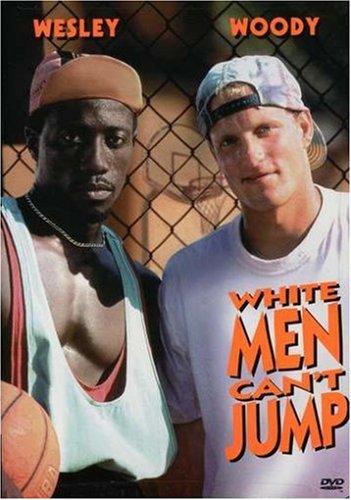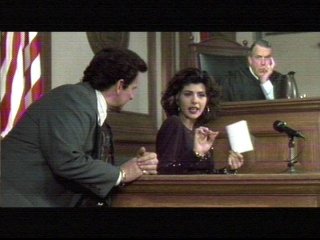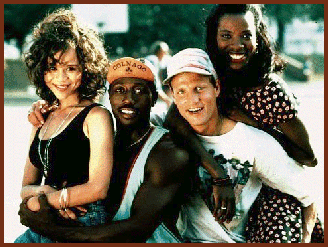From the Chicago Reader (July 3, 1992). This marks my first encounter with Lars von Trier. — J.R.

ZENTROPA
*** (A must-see)
Directed by Lars von Trier
Written by von Trier and Niels Vorsel
With Jean-Marc Barr, Barbara Sukowa, Udo Kier, Ernst-Hugo Jaregard, Erik Mork, Jorgen Reenberg, Henning Jensen, Eddie Constantine, and the voice of Max von Sydow.
Lars von Trier’s Zentropa is the most exciting failure to come along in ages. This Danish-French-German-Swedish coproduction (known as Europa outside the United States), turning up here over a year after it received both the Jury Prize and the Technical Prize at Cannes, addresses so many fundamental contemporary questions about postmodernism, language, colonialism, the Common Market, coproduction, the future of European cinema, and our collective memory of World War II that one may feel a mite churlish pointing out that its technique ultimately overwhelms the themes and characters. After all, exercices de style worthy of the name are not exactly plentiful these days, and Zentropa is an especially dazzling example — vastly more impressive than Barton Fink or Kafka or Shadows and Fog, to cite only the first rough counterparts that come to mind. It has so much to say and do, in fact, that its failure to get everything said and done has to be weighed against the failure of most other recent movies to say or do anything at all beyond the barest commercial minimum. Read more
From the August 16, 2002 Chicago Reader. — J.R.
I was lucky enough to see John Coltrane’s classic quartet several times in the 60s and was always amazed by his total relaxation amid the cascading wails and yodeling fast runs that came out of his saxophone. He, pianist McCoy Tyner, bassist Jimmy Garrison, and drummer Elvin Jones were completely absorbed, listening to one another so intently that one couldn’t help but join them, even in a noisy nightclub. This 1992 documentary by writer-director Robert Palmer, codirected by Toby Byron, starts off with familiar talk about family and church, some of it voiced over scratchy and blotchy TV performance footage, so I was prepared for the worst. Then comes a lively sequence that cuts between still photographs in sync with “Giant Steps,” and from then on this is pure pleasure. Byron and Palmer are among the few jazz documentarians with the good sense to let us listen to the music for reasonably long stretches without interruption; they present an entire fine Coltrane solo on “So What” with Miles Davis, a relatively stiff rendition of “My Favorite Things” on TV followed by a much better version in concert, a complete performance of “Impressions” with Eric Dolphy on alto sax and a fleet solo by Tyner, an equally full version of “Alabama” punctuated by talking heads, and two healthy chunks of “Naima” that exemplify Coltrane’s later and freer style. Read more
From the Chicago Reader (April 24, 1992). — J.R.


MY COUSIN VINNY
*** (A must-see)
Directed by Jonathan Lynn
Written by Dale Launer
With Joe Pesci, Marisa Tomei, Ralph Macchio, Mitchell Whitfield, Fred Gwynne, Lane Smith, and Austin Pendleton.
WHITE MEN CAN’T JUMP
*** (A must-see)
Directed and written by Ron Shelton
With Wesley Snipes, Woody Harrelson, Rosie Perez, Tyra Ferrell, Cylk Cozart, and Kadeem Hardison.


“Why is this film so popular?” Michael Sragow asked a little plaintively about My Cousin Vinny in the New Yorker last week. Then he suggested an answer: “Perhaps because it gives Pesci a chance to combine his commercial signature, pop scabrousness, with old-fashioned virtues like ‘heart.'” This hypothesis implies that audiences go to comedies for highly esoteric reasons — just like some film critics.
Personally, I’d rather believe that My Cousin Vinny is popular for reasons that have more to do with reality and recognition — specifically, with an appreciation of American regionalism that most contemporary American movies never even attempt, much less convey. Read more
A watershed in the history of Chinese cinema, this first feature (1998) directed by Lu Yue — the remarkable cinematographer of Xiu Xiu: The Sent Down Girl and several recent features of Zhang Yimou, including Shanghai Triad — is an eye-opening comedy about adultery in contemporary Shanghai. Much of the dialogue is improvised by the talented actors — Shi Jingming as the husband, a professor of traditional Chinese medicine; Zhang Zhihua as his factory-worker wife; and Chen Yinan as his mistress and former student — and both the shooting style and the emotional directness of the performances suggest the filmmaking of John Cassavetes. Though this is unquestionably one of the key films of the 90s from mainland China, it unaccountably disappeared from sight after winning the Golden Leopard at the Locarno film festival in 1998, and as far as I know this [in August 1999] is its first commercial run. Viewers requiring the validation of the New York Times or the New Yorker before making their cultural decisions will therefore have to take a pass on this, and it will be their tough luck. (JR) Read more





